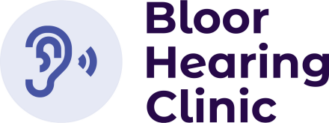
Our Blog
What Is Cognitive Ability and Is It Related to Hearing Loss?

Every time you solve a problem, recall a memory, or follow directions, you’re using a powerful set of mental tools that keep you sharp, responsive, and connected. When one part of that system, like your hearing, starts to decline, it can hinder your mental processes.
At Bloor Hearing Clinic, we emphasize the connection between hearing health and brain function, especially for those at risk of cognitive changes. Cognitive ability plays a central role in how we understand, learn, and function in everyday life. From remembering names to making quick decisions in high-pressure moments, our thinking abilities shape everything we do.
In this blog, we’ll discuss how mental processes connect to hearing loss. As research continues to explore the relationship between the brain and hearing, a clearer picture is emerging. Hearing health and cognitive function are more intertwined than many people realize.
What Is Cognitive Ability?
The human brain can filter sounds in a matter of seconds, allowing you to recognize faces and prepare a response when in social settings. This seamless coordination doesn’t happen by accident. It’s your cognitive ability at work.
Cognitive ability refers to the brain’s capacity to carry out a wide range of mental activities. It’s not just one skill. It includes a collection of cognitive skills that help us think, learn, reason, and solve problems.
Our brains rely on the following skills to function smoothly:
Process incoming information
Interpret our surroundings
Respond appropriately
Retrieve information from long-term memory
Make deductive reasoning decisions in the moment
Cognitive ability is a key focus of cognitive sciences, which study how humans acquire, understand, and use knowledge. The brain employs various mental processes, such as attention, language, and memory, to make sense of the world. A decline in any of these can significantly impact daily life and overall brain function.
Early detection matters, making cognitive screening tests for dementia in Toronto highly recommended. Identifying hearing issues early can help protect both communication and brain performance over time.
Different Aspects of Cognitive Ability
Cognition includes multiple components. The different aspects of cognitive ability explain how we carry out even the simplest tasks.
Attention
Paying attention is a basic cognitive skill that allows us to focus on relevant information and ignore distractions. Sustained attention helps us stay concentrated over time, while selective attention filters out irrelevant stimuli.
Executive Function
These executive functions help us plan, organize, and complete multiple tasks. They support goal setting, decision making, and managing our emotions and behavior. Strong executive skills are essential for adapting to new situations and solving unexpected problems.
Language
Language skills enable comprehension, communication, and expression. This includes understanding spoken and written language and forming meaningful responses. Language skills are also linked to auditory processing, the brain’s ability to interpret sounds and speech.
Memory
Short-term memory, working memory, and long-term memory all play unique roles in cognition. They help us retrieve information, recall past events, and apply what we’ve learned. Strong memory skills support learning, problem solving, and critical thinking.
Visual-Spatial
This area involves visual processing and the brain’s ability to understand spatial relationships. Whether it’s reading a map or organizing items in space, pattern recognition and processing speed are important components of this skill set.
Cognitive Abilities in Daily Life
While mostly associated with academic tests, your cognitive abilities span more than just that. They impact real-world activities every day. Here are several ways we rely on cognitive function in practical situations.
Creating
Designing, writing, or making something new all rely on a mix of thinking skills, problem-solving skills, and creativity. These tasks also depend on working memory and mental flexibility to transform ideas into tangible results.
Driving
Driving requires fast decision-making, strong processing speed, and the ability to manage multiple tasks simultaneously. You need to stay alert, react quickly, and remember directions, often in just a few minutes.
Emergency Situations
In high-stress moments, cognitive capacities are put to the test. Making the right call depends on quick reasoning, past experience, and a clear understanding of the situation. You must quickly assess risks, remember relevant procedures, and take appropriate action under pressure.
Parenting
Caring for children involves planning, managing behavior, teaching new skills, and staying emotionally balanced. It also demands sustained attention and the ability to switch between tasks without losing focus. All of these tap into executive functions and other cognitive skills.
Planning
Effective planning involves anticipating obstacles and sequencing steps logically to achieve outcomes. Creating to-do lists, setting appointments, and preparing for the future rely on strong organization and goal setting. These are hallmarks of high executive function.
Playing Sports
Sports rely heavily on pattern recognition, quick reflexes, short-term memory, and visual-spatial skills. Athletes also use predictive thinking and split-second decision-making to adapt to rapidly changing situations.
Self Awareness
Self-awareness is a higher-order skill. It involves reflecting on one’s thoughts, behavior, and emotions, which is key for personal growth and social relationships.
Social Interactions
Conversations require listening, interpreting social cues, and responding appropriately. Good cognitive skills help us maintain healthy social interactions and build meaningful connections.
Teaching
Educators use knowledge, communication, problem-solving, and thinking abilities to adapt their lessons to different learning styles. They also monitor student engagement and adjust methods in real time based on feedback and classroom dynamics.
Working
Most jobs require a blend of mental activities, attention span, reasoning, understanding, and communication. Strong cognitive skills help employees learn new tools, adapt to workplace demands, and solve unexpected challenges efficiently.
Linking Cognitive Ability to Hearing Loss
Hearing loss doesn’t just affect the ears. It can impact cognition as well. When hearing is compromised, the brain must work harder to decode sound. This increased effort can strain thinking skills, reduce attention span, and limit the ability to process information efficiently.
Studies show a significant association between hearing loss and cognitive decline, including an increased risk of dementia and cognitive impairment. Poor auditory processing forces the brain to divert resources from other functions just to understand speech. Over time, this may contribute to declines in cognitive function, especially in older adults. This connection is thought to be due to the brain having to work harder to process sound, potentially diverting resources away from memory and other cognitive functions. Furthermore, hearing loss can lead to social isolation, which is another risk factor for dementia.
If the brain isn’t getting enough stimulation, it can lead to underuse and affect brain function over time. Even moderate hearing loss has been linked to reduced mental abilities and slower processing speed.
In children, early hearing problems can interfere with the development of cognitive skills, especially language and learning. In adults, hearing loss can isolate people socially, limiting opportunities for mental activities and social interactions that help keep the brain sharp.
That said, protecting your hearing is more crucial than ever. It helps preserve cognitive capacities and supports your long-term physical health and well-being.
Conclusion
Cognitive ability is central to how we learn, adapt, and thrive in everyday situations. It relies on a network of cognitive skills that help us stay focused, solve problems, and engage with others. But these abilities don’t operate in isolation. Poor hearing can affect how well we process information, especially in complex environments.
Hearing health plays a significant role in supporting cognitive function. In early childhood, midlife, or older age, hearing and cognitive health together must be a priority. Recognizing the link between cognitive abilities and hearing loss is the first step in maintaining your total brain and body health.
